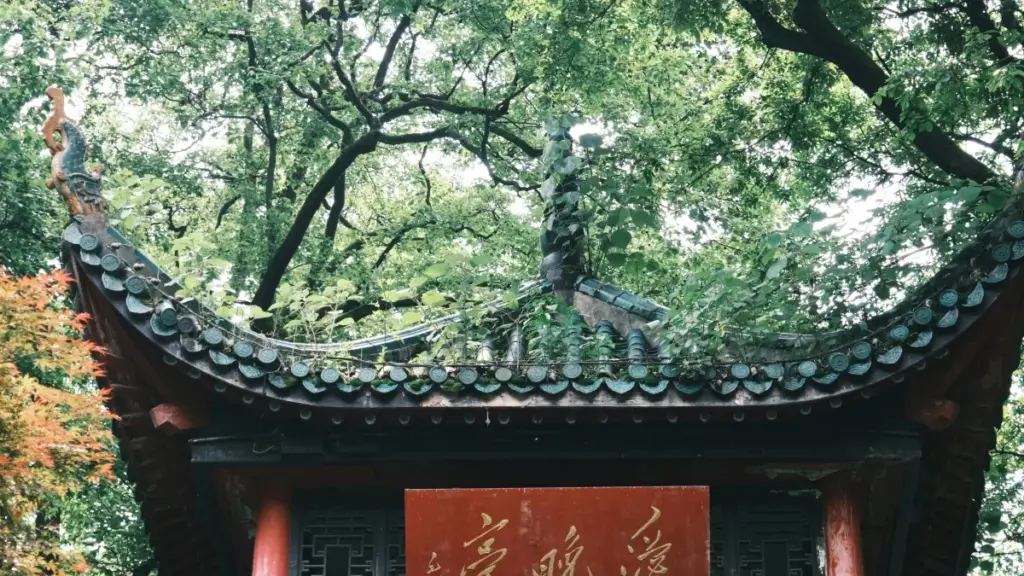💡 Why Zimbabwe brands should care about “Jingdong, Indonesia” and confirming content rights
If you’re a brand or agency in Harare, Bulawayo, or anywhere in Zimbabwe thinking of pushing products into Southeast Asian channels — or simply repurposing content from Indonesian marketplaces — you need to read this. Jingdong (JD.com) is no longer just a China‑facing retail giant; it’s expanding hard, building logistics, and moving into global retail footprints (the company description shows JD’s scope across retail categories and supply‑chain services). That matters because where JD goes, platform rules, content standards, and rights enforcement follow.
Recent coverage shows JD is doubling down on global scale — for instance, JD’s move to acquire Germany’s electronics retailer CECONOMY was reported by Yahoo Japan / 36Kr Japan on 2025‑08‑09, which signals JD’s intention to operate bigger and more complex retail ecosystems across borders. (Yahoo Japan / 36Kr Japan, 2025‑08‑09). At the same time, industry commentary flags how big Chinese tech players are navigating tariffs and AI investments — meaning platforms are reshaping policy and automation that can affect how content is flagged and removed (InternetProtocol, 2025‑08‑09). And don’t forget the demand side: Indonesia’s travel and repeat‑visit growth shows local consumer markets are lively and worth targeting (Travelandtourworld, 2025‑08‑09).
So — what’s the real problem Zimbabwe advertisers face? It’s simple: you can’t assume that a piece of UGC, an influencer video, or a product photo you found on a Jingdong Indonesia listing is free to reuse. Cross‑border rights are messy. You need a practical checklist and playbook to confirm content usage rights before investing in campaigns, printing ad collateral, or pushing paid posts that use third‑party content.
This guide gives you that playbook — practical checks, contract language to ask for, a quick table comparing options, and step‑by‑step actions if your content gets flagged. No legalese, just usable moves you can do tonight before that next campaign goes live.
📊 Quick comparison — Where to get content rights for Indonesia campaigns
| 🧩 Metric | Jingdong (JD.com) | Local Marketplaces (Shopee/Tokopedia) | Cross‑border Marketplaces (Lazada/Amazon) |
|---|---|---|---|
| 👥 Audience match | High | Medium | Medium |
| ⚖️ Ease of rights clearance | Medium | Low | Low |
| 📦 Logistics & fulfilment control | High | Medium | Medium |
| 💸 Cost to advertiser (content licensing) | Medium | Low | Medium |
| 🔍 Platform enforcement (DMCA / IP takedown) | Strict | Strict | Strict |
| 📝 Best source for clean rights | Direct creator + JD merchant contract | Creator + local agency | Creator + global licence |
Summary: Jingdong gives strong logistics and audience targeting for electronics and lifestyle goods — but rights clearance sits in the middle: JD can enforce takedowns strictly (especially as it internationalises), so you must secure direct licences. Local marketplaces often have more informal listings and trickier provenance, while cross‑border platforms may accept wider licences but still enforce IP fast. Bottom line: always get written commercial use and territory clauses before reuse.
😎 MaTitie SHOWTIME
Hi, I’m MaTitie — the writer here at BaoLiba who spends too many nights scrolling marketplace listings and chasing bargains. I test tools, talk to creators, and I’m blunt: online rules change fast and you need a VPN, proper contracts, and a bit of common sense.
If you’re running campaigns that touch Jingdong or Indonesian channels from Zimbabwe, privacy and platform access matter — and sometimes you’ll need to check things that are geo‑blocked or region‑restricted while doing approvals. For speed and privacy I recommend NordVPN — it’s saved me more than once when checking regional pages and marketplace variants.
👉 🔐 Try NordVPN now — 30‑day risk‑free.
This link helps keep my research flowing. MaTitie may earn a small commission from purchases made through this link.
💡 The practical playbook — Confirming content usage rights with Jingdong Indonesia
Below is a stepwise checklist you can run through before deploying any creative that references Jingdong listings, Indonesian creators, or marketplace UGC.
1) Identify the content owner
– Is the file uploaded by a verified merchant on JD or by a third‑party seller? JD.com operates both first‑party and marketplace listings (company profile: JD.com’s retail + marketplace model). If a listing is merchant‑owned, ask the merchant for written rights. If it’s creator UGC, get the creator’s direct id and contact.
2) Ask for a written licence (not DM)
– The licence should be written, dated, and signed (or emailed from a verified account). Minimum clauses:
• Grantor: legal name of creator/merchant
• Grantee: your Zimbabwe legal entity or agency
• Rights granted: commercial use, editing, adaptation, translation
• Territories: list (e.g., Zimbabwe, Indonesia, global) — be explicit
• Duration: start & end dates, or perpetual if agreed
• Sublicence: whether you can grant the ad network or media partners rights
• Exclusivity: none / exclusive / non‑exclusive
• Payment terms & moral rights waiver (if allowed under Indonesian creator law)
3) Get model and property releases
– If the content shows people, buildings, or branded goods (other than your product), secure model releases and property releases. This avoids portrait or location disputes.
4) Check music and third‑party IP
– Many creators use background music without clear licences. Ask for track licence proof (sync/license). If none, plan to replace the audio.
5) Confirm language & localisation rights
– If you’ll translate captions, include a clause that allows adaptation into English, Shona, or other languages and reformatting for ad formats.
6) Platform compliance
– Platforms like JD, Shopee, Tokopedia, and cross‑border marketplaces have takedown pipelines and automated matching (and JD’s enforcement is getting more automated as they expand — see InternetProtocol analysis). Keep licence docs handy; platforms usually ask for proof when a dispute arises.
7) Keep an audit trail
– Save emails, timestamps, signed PDFs, and payment receipts in a rights folder — you’ll need them if a takedown or dispute happens.
8) When buying influencer content
– Use a template contract that combines:
• Deliverables list (format, length, language)
• IP transfer / licence language
• Usage terms for paid ads and organic use
• Indemnity and warranties (creator warranties that content is original)
• Payment schedule & approval rounds
9) Work with an Indonesian agent if unsure
– Local agents or influencer agencies can do the heavy lifting: trace creators, confirm local law nuances, and collect original files and licences.
10) If you are repurposing JD product images
– Product images often belong to the brand or the seller. If you’re the brand owner, provide a brand licence letter that confirms permission to use product images on JD/other channels.
⚠️ If content gets flagged or removed — immediate steps
- Pull the ad immediately to limit further exposure.
- Gather licence files and send them to platform support (JD merchant/IP team).
- Put a temporary replacement creative live while dispute is resolved.
- If the platform insists and you have a licence, escalate: ask for human review and cite your licence clause dates.
- If you don’t have clear rights, accept takedown and budget for re-creation — cheaper than a copyright suit and brand reputation hit.
💡 Longer view: why JD’s global moves matter for your content risks
JD.com is building out logistics, marketplace services, and omni‑channel solutions (company profile provided in the reference content). As JD scales outside East Asia (note: the CECONOMY acquisition reported by Yahoo Japan / 36Kr Japan on 2025‑08‑09), expect:
– stricter platform enforcement (automated content checks),
– faster cross‑border takedowns,
– more formal merchant agreements requiring documented licences.
At the same time, Indonesian e‑commerce and consumer demand are active (Travelandtourworld noted strong repeat travel and consumer growth in the region on 2025‑08‑09), so the audience upside is real — but only if your rights management is tight. InternetProtocol’s reporting on big tech pressures (2025‑08‑09) is a reminder that platforms will automate more of their policies, so manual fixes will become harder if you’re missing paperwork.
🙋 Mibvunzo Inowanzo Bvunzwa (Frequently Asked Questions)
❓ How do I check if content on Jingdong is safe to reuse?
💬 Start by asking the uploader (merchant or creator) for a written licence that specifically allows commercial use and covers the territories where you’ll run ads. If the listing shows “JD merchant” that doesn’t automatically give you reuse rights — get the paperwork.
🛠️ What clauses must be in an influencer licence for Indonesian creators?
💬 Must include: grant of commercial rights, editing/adaptation permission, territory list, duration, and whether you can sublicense to ad platforms. Also get model, music, and property releases attached.
🧠 Is it worth using local agencies in Indonesia to handle rights?
💬 Yes — they move faster on proof of ownership and local law nuances, and typically help secure the original high‑res files and licences you need for full ads. If budget allows, it avoids headaches later.
🧩 Final Thoughts
If your brand in Zimbabwe wants to tap Indonesian audiences or reuse creative from Jingdong listings, treat content rights like an operational step, not a legal footnote. JD’s growing global footprint (seen in the CECONOMY news) and platform automation mean takedowns and disputes will happen fast. Keep simple, signed licences, track music/model releases, and have backup creatives ready. That small bit of discipline saves time, money, and brand headaches when a campaign goes live.
📚 Verenga Zvimwe (Further Reading)
Here are three articles from the news pool that help give broader context — influencer strategy, brand safety debates, and platform tech moves.
🔸 RiseAlive – Top Influencer Marketing Agency in Dubai, UAE Goes Global
🗞️ Source: TechBullion – 2025‑08‑09
🔗 https://techbullion.com/risealive-top-influencer-marketing-agency-in-dubai-uae-goes-global/
🔸 L’Oréal hires OnlyFans star to market makeup popular with teenagers
🗞️ Source: The Guardian – 2025‑08‑09
🔗 https://www.theguardian.com/fashion/2025/aug/09/loreal-hires-onlyfans-star-to-market-makeup-popular-with-teenagers
🔸 “Speed is everything” – how Arm and Aston Martin’s new wind tunnel venture looks to bring in a new era of success
🗞️ Source: TechRadar – 2025‑08‑09
🔗 https://www.techradar.com/pro/security/speed-is-everything-arm-and-aston-martins-new-wind-tunnel-venture
😅 A Quick Shameless Plug (Hope You Don’t Mind)
If you’re making content for Facebook, TikTok, or marketplaces — don’t let your creators vanish into the noise. Join BaoLiba: we rank creators by region and category so you can find verified talent and track who has clean rights and proof of licence. Sign up and ask about our limited offer for homepage promotion.
Email: [email protected] — we usually reply within 24–48 hours.
📌 Chiziviso
This article combines public company descriptions and recent news with practical advice. It’s for guidance and not legal advice. Always consult a local IP lawyer for binding legal decisions and double‑check licences before using third‑party content.


